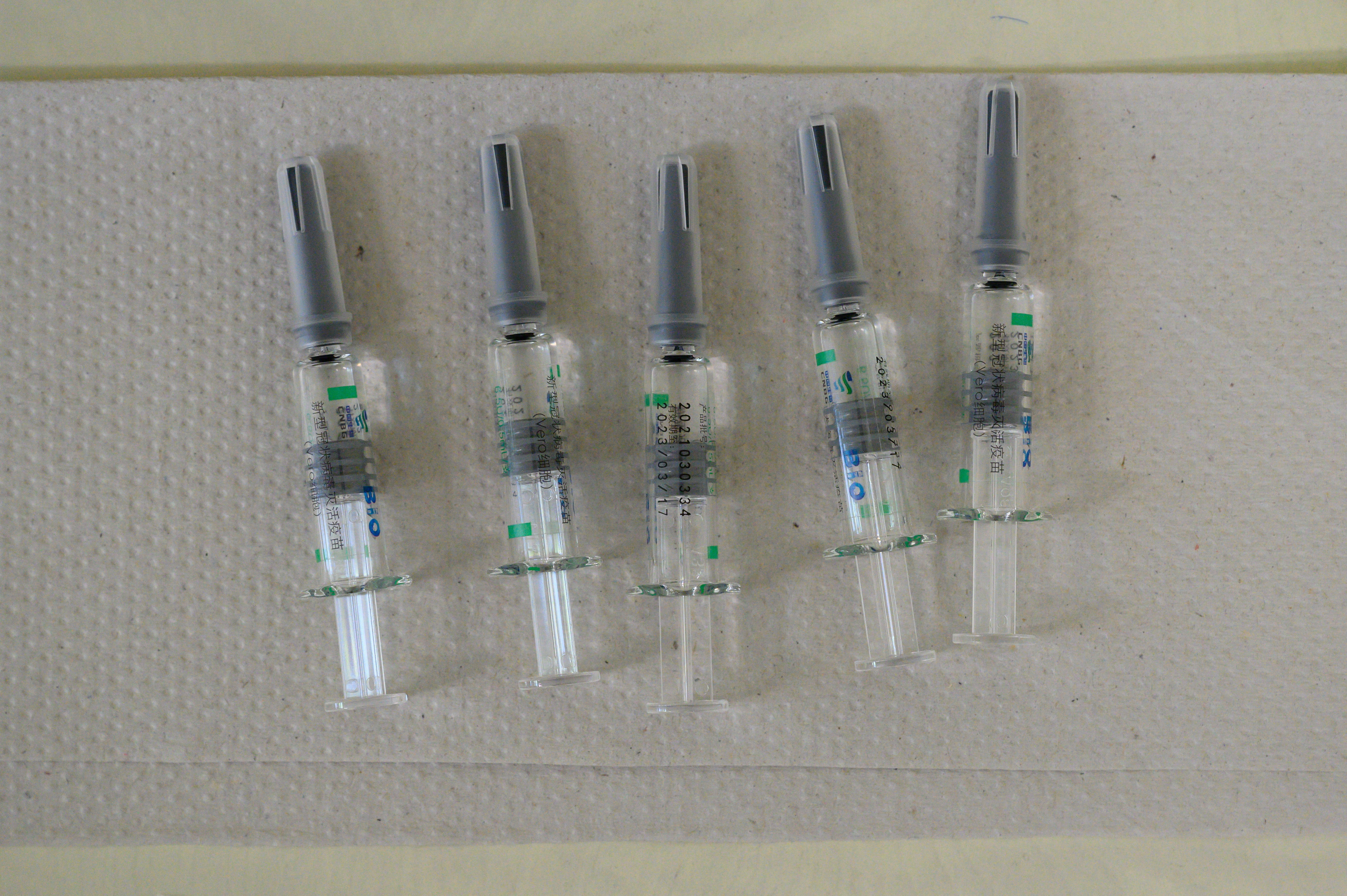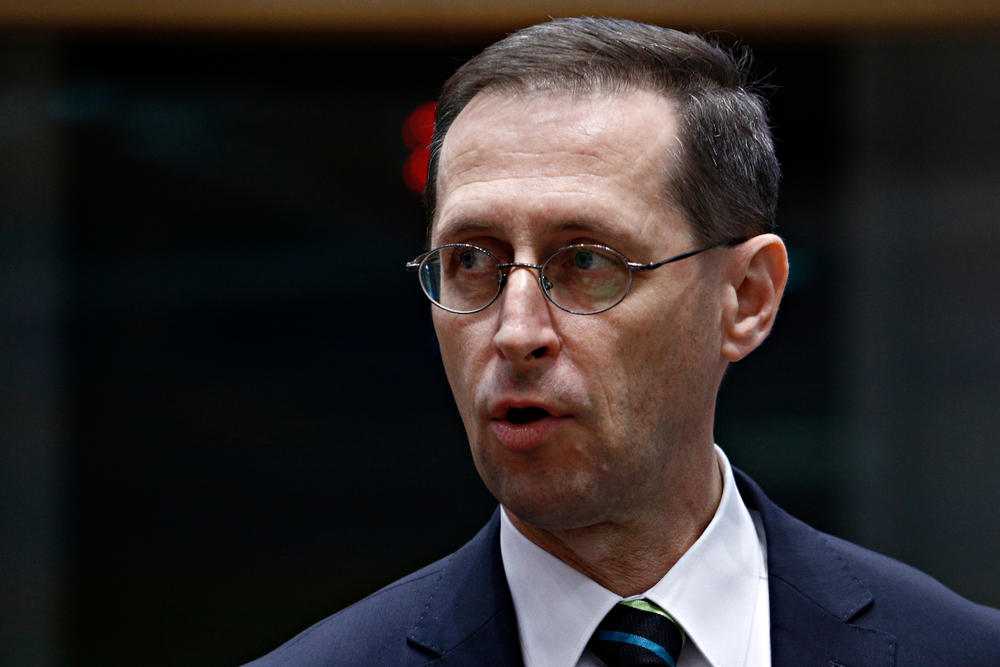5 Millionth Hungarian Vaccinated as Indian Variant Arrives in Hungary

Syringes containing the Chinese Sinopharm coronavirus vaccine prepared for use at the Szent György University Teaching Hospital in Fejér County, Székesfehérvár, on June 2, 2021.
Photo by MTI / Tamás Vasvári
The five millionth Hungarian had been inoculated against the coronavirus by Saturday, May 22, which triggered a further easing of pandemic restrictions, Prime Minister Viktor Orbán said in a video posted on his Facebook page.
With more than half of the population inoculated, mask-wearing is no longer required nor the maintenance of social distancing outdoors in public areas. Additionally, the evening curfew has ended, and restrictions on opening hours for businesses have been lifted. However, masks remain compulsory in public spaces where people immune to the coronavirus intermingle with those who are not, for example, in shops and on public transportation.
Anyone can attend outdoor events of up to 500 people without restriction; however, entry to events with more participants or indoor events requires a COVID immunity certificate.
As restrictions ease even further, Hungarians must still be wary of becoming infected by the coronavirus, particularly those that have yet to be vaccinated. Emphasizing the need for this warning, the country’s chief medical officer Dr. Cecília Müller told a pandemic press briefing on May 25 that the fast-spreading Indian variant of the coronavirus has been identified in Hungary, according to koronavirus.gov.hu.
Müller said one of the two cases had already recovered, without serious symptoms, while the other was being treated in hospital but did not require a ventilator. Curiously, she added that neither of the patients had traveled abroad, and surprisingly a probe could not determine the source of their infections.
According to a weekly survey by the Central Statistical Office (KSH), the ratio of Hungarians who have firm plans to get vaccinated or have already received their first jab stands close to 68%. The rate for the week ending May 16 is up from just 15% when KSH started conducting the surveys in the first week of December.
Vaccine Options
The high vaccination rate among Hungarians can largely be attributed to the broad selection of vaccines available in the country. Hungary’s use of Chinese and Russian COVID jabs in its vaccination rollout has saved the country more than HUF 500 billion as pandemic restrictions could be eased earlier, State Secretary Tamás Menczer claimed at a conference in Zalaegerszeg (225 km southwest of Budapest by road) on May 20, according to origo.hu.
Menczer noted that four million people in Hungary had been inoculated against the coronavirus by April 30 and that without Chinese and Russian vaccines, that number would not have been reached until “the second half of July.”
Of these “Eastern” vaccines, the last shipment of Russia’s Sputnik V vaccines had been delivered to Hungary on May 11, while the last of five million jabs of China’s Sinopharm COVID vaccine arrived in Budapest on May 21, Minister of Foreign Affairs and Trade Péter Szijjártó said in a video message posted on Facebook.
While in China on May 31, Szijjártó reported that an agreement had been reached which would allow the National Vaccine Plant Hungary is building at Debrecen (231 km east of Budapest) to be outfitted for production of Chinese COVID vaccines. Meanwhile, an additional 330,000 doses of the COVID vaccine developed by Pfizer and BioNTech arrived in Hungary on May 25.
For those already vaccinated, immunity certificates will enable them to enjoy amenities, such as dining indoors or attend events like the concerts mentioned above. The question remains whether immunity certificate holders will be able to use them to travel abroad over the summer. Thus far, agreement has been reached that immunity certificates issued in Hungary will be accepted in Bahrain, Croatia, the Czech Republic, Georgia, Moldova, Mongolia, Montenegro, Romania, Serbia, Slovenia, and Turkey.
This article was first published in the Budapest Business Journal print issue of June 4, 2021.
SUPPORT THE BUDAPEST BUSINESS JOURNAL
Producing journalism that is worthy of the name is a costly business. For 27 years, the publishers, editors and reporters of the Budapest Business Journal have striven to bring you business news that works, information that you can trust, that is factual, accurate and presented without fear or favor.
Newspaper organizations across the globe have struggled to find a business model that allows them to continue to excel, without compromising their ability to perform. Most recently, some have experimented with the idea of involving their most important stakeholders, their readers.
We would like to offer that same opportunity to our readers. We would like to invite you to help us deliver the quality business journalism you require. Hit our Support the BBJ button and you can choose the how much and how often you send us your contributions.








